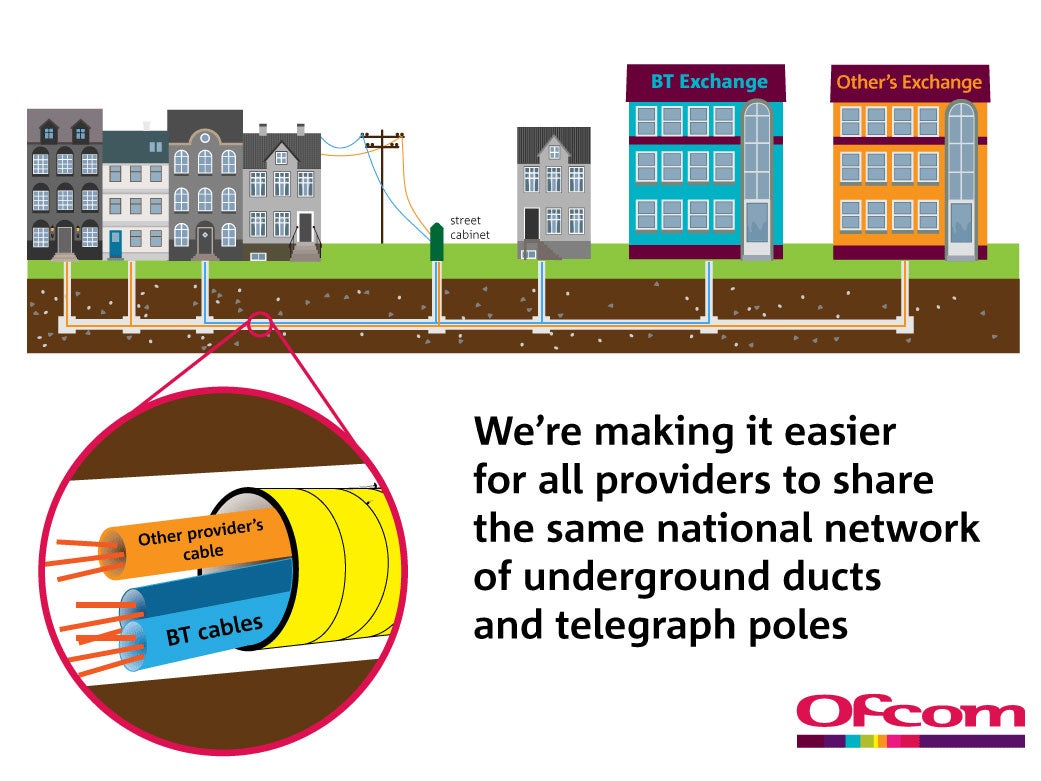How Ofcom's review of BT Openreach could improve your internet service
The Ofcom ruling could push up broadband speeds across the UK

Ofcom's latest decision on competition in the internet market could make the UK's broadband faster and better, if all goes to plan.
Currently, BT-owned company Openreach has a monopoly on the telegraph poles and underground cable ducts which connect homes and businesses to the UK's internet network.
Companies like Sky and TalkTalk pay Openreach to use its infrastructure to provide internet to their customers' homes.
However, these companies have complained that the service is not up to scratch, leaving many people with slow speeds and service interruptions. There's also high costs associated with getting your house connected if you live in a remote area, since Openreach is the only company that can do it.
Now, Ofcom has said that rival companies should be able to lay their own cables which will connnect directly to customers' homes and businesses, rather than having to rely on Openreach to make the final connection.

Ofcom believes that this decision will improve the quality and speed of broadband in the UK. Theoretically, the new state of the market will have internet companies competing with each other for your business, either by offering lower prices, improved speeds or different perks.
Ofcom's recommendations could make your internet bill a little smaller in other ways. In the report, it said it will look at introducing automatic compensation for customers when things go wrong.
Under this system, you'd receive a cheque in the post or a reduced bill if your internet went down, a big change from the lengthy and painful complaints system that customers have to go through to get a refund now.
Ofcom will also start publishing league tables of the best and worst internet and phone providers, giving you a trove of information if you want to switch, and they'll start pushing the Government to make fast, reliable and affordable broadband a "universal right" for everyone in the UK.
These changes could really affect people in rural, remote areas where internet service is poor, but they could also benefit city-dwellers who suffer from slow internet speeds.
Join our commenting forum
Join thought-provoking conversations, follow other Independent readers and see their replies
Comments
Bookmark popover
Removed from bookmarks